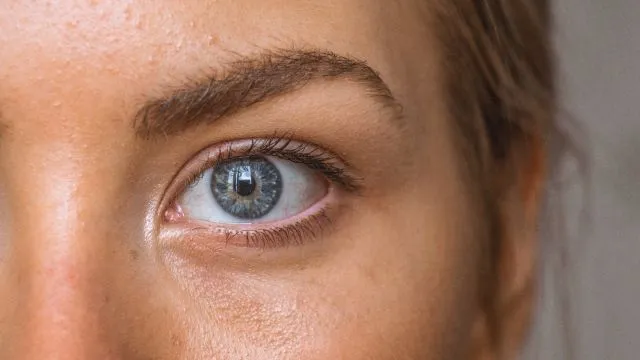
Though you may think that vision decline is simply inevitable as you age, there are actually quite a few ways to help preserve your eyesight and prevent eye diseases from developing. What you eat doesn’t just affect your waistline, it can benefit (or harm) your vision as well. Though there is no way to reverse poor eyesight, these foods can help prevent further degeneration and keep your peepers healthy.
Fish
Fish are loaded with high levels of beneficial omega-3 fatty acids that can contribute to eye health and keep your vision sharp. In fact, studies have shown that eating a diet rich in fish oil could help restore moisture to your eyes and reduce dry eye symptoms in computer-related dry eye cases. If you’re not a fan of seafood, you can easily include a daily fish oil supplement in your diet.
The best fish for omega-3s include:
- Tuna
- Salmon
- Trout
- Mackerel
- Sardines
- Anchovies
- Herring
Always buy fresh-caught, not farm-raised fish.
Leafy greens
If you feel like leafy greens are always in the spotlight, you would be right. Green veggies, especially ones like kale, spinach, and collard greens, are packed full of beneficial nutrients. Studies have even linked a diet heavy in leafy greens to slower age-related cognitive decline. When it comes to eyesight specifically, they possess important plant pigments known as lutein and zeaxanthin that work to prevent macular degeneration and cataracts. Plus, leafy greens help create a protective shield against harmful UV rays.
Beef
Though lean meats such as chicken are generally healthier than dark meats, moderate amounts of grass-fed beef have been linked to long-term eye health. Beef is high in zinc, which is a beneficial mineral for delaying age-related vision loss.
Eggs
Eggs are packed with tons of nutrients that benefit many areas of the body. Specifically, they are rich in lutein and vitamin A, which (as noted above) are necessary for healthy, sharp eyes. Enjoy eggs cooked in a healthy oil such as coconut oil with a little salt and pepper. You can also hardboil eggs for a great on-the-go snack or breakfast.
Berries
Raspberries, blueberries, blackberries, and strawberries are all loaded with antioxidants that help clear your body of harmful free radicals. Oxidative stress is caused by free radicals in the body that can cause significant damage to living cells and tissues, and encourage macular degeneration. Naturally occurring antioxidants counteract this process and protect your eyesight and the rest of your body.
Legumes
Kidney beans, black-eyed peas, and lentils are also an excellent source of supplemental omega-3s if you don’t eat a lot of fish. Legumes are incredibly easy to incorporate into your diet and protect the retina from macular degeneration and cataracts.
Carrots
Though the claims about carrots improving your eyesight are overblown, they do provide some benefit to eye health, and there are a few small studies that suggest they could help improve night vision in those with beta carotene deficiencies. Carrots are high in vitamin A, which is a component of a protein called rhodopsin that helps the retina to absorb light.
Citrus
Citrus is high in vitamin C, which is crucial for maintaining eye health and can help lower the risk of age-related vision decline.
Seeds
Chia, sunflower, and flaxseeds all have notable vision benefits. Plus, seeds are incredibly easy to incorporate into your diet on a daily basis. Loaded with omega-3s, vitamin E, zinc, antioxidants, and fiber, seeds are pretty much the whole package.
Whole grains
Cut out damaging refined carbohydrates from your diet and incorporate more whole grains such as quinoa, brown rice, and whole oats. Vitamin E, zinc, and niacin, in whole grains along with a lowered glycemic index from cutting out refined carbs, are all helpful for promoting overall eye health.
Water
Though not a food, water deserves mention because it is so critical to a healthy, functioning body, including your eyesight. Stay hydrated can also help improve the symptoms of dry eye and protect your vision.
Other ways to take care of your eyes
- Stop smoking
- Wear sunglasses
- Look away from the computer screen every 20 mins
- Use safety eyewear when performing hazardous activities
- Wear glasses, if needed
- Go to the eye doctor for your yearly eye exam
What do you do to improve your eyesight? Let us know in the comments below!
-Susan Patterson

